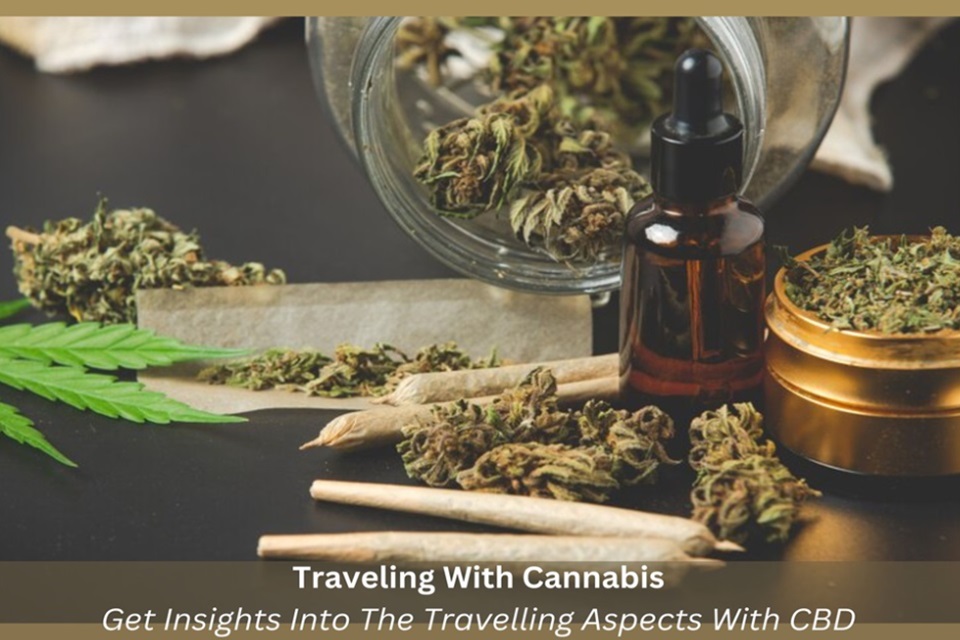Traveling With Cannabis: Get Insights Into The Travelling Aspects With CBD
Embarking on a journey with cannabis requires more than just packing your favorite strains. The evolving landscape of cannabis legalization and decriminalization demands travelers to stay well-informed and prepared. In this article, we delve into the intricacies of traveling with cannabis, exploring the legal nuances, practical tips, and the specific challenges posed by air travel. Whether you’re a medical user or a recreational enthusiast, understanding the laws governing cannabis in different locations is paramount for a hassle-free and enjoyable trip.
CBD Legalization & Decriminalization
The global shift towards cannabis acceptance has seen significant strides in the legalization and decriminalization of cannabidiol (CBD). While some regions have accepted its therapeutic potential and legalized its use, others have decriminalized its possession, minimizing penalties. However, navigating the complex web of laws remains crucial, considering the varying degrees of acceptance worldwide.
CBD In Travel: Practical Considerations
- Edibles: When traveling with edible cannabis products, discretion is key. Ensure they remain in their original packaging with clear labels, taking note of THC content restrictions.
- Concentrates: Oils, waxes, and shatters demand careful handling due to their potency. Be aware of the specific laws regarding concentrates in your destination and store them in marked containers.
- Flower: The classic cannabis flower requires odor-proof containers to mitigate any unwanted attention. Understand quantity limits and prioritize secure storage, especially during air travel.
Practical Suggestions For Cannabis Travel
For a trouble-free journey with cannabis, keep the following practical suggestions in mind:
Preserve Original Packaging: Ensure cannabis remains in its initial packaging to prevent confusion during security checks.
- Stay Well-Informed: Conduct thorough research to comprehend the cannabis regulations in your destination and any transit points.
- Document Your Use: If you are a medical cannabis user, carry necessary medical documents, including a Medical Marijuana card and prescriptions.
- Observe Quantity Limits: Adhere strictly to possession limits set by regions where cannabis is legally permissible.
Air Travel & Cannabis
Flying with cannabis presents unique challenges, varying from country to country. Understanding airline policies and the legal implications of carrying cannabis is crucial. Always check specific guidelines before flying, as ignorance could lead to unwarranted complications.
Risks & Penalties
Penalties for traveling with cannabis range from inconvenience to severe consequences, depending on the destination’s drug laws. Even in legalized regions, public consumption may be prohibited, and driving under the influence can lead to serious charges. Prioritize your safety and comply with local laws to avoid legal complications.
In Summary
In conclusion, traveling with cannabis requires meticulous planning and adherence to local laws. Being well-informed about the legal criteria of your local area and the place you are traveling to is important whether you are traveling with CBD for medical or recreational use.
While the positive aspects of cannabis acceptance and access are evident, travelers must remain cautious to avoid the potential pitfalls associated with varying regulations. By staying informed, prepared, and respectful of local laws, you can embark on a journey that celebrates the benefits of cannabis without compromising your safety.
FAQs
Are there specific restrictions for flying with cannabis edibles?
Yes, ensure edibles are in their original packaging with clear labels, adhering to THC content limits.
Is it safe to carry medical cannabis documentation when traveling?
Yes, carrying relevant medical documentation, like a Medical Marijuana card, is advisable for hassle-free travel.
Is it okay to take weed from one legal state to another in the U.S.?
Nope, it’s still against federal law to move weed between states, even if they’re both legal. Check the rules for each state before you do anything.
Continue reading





